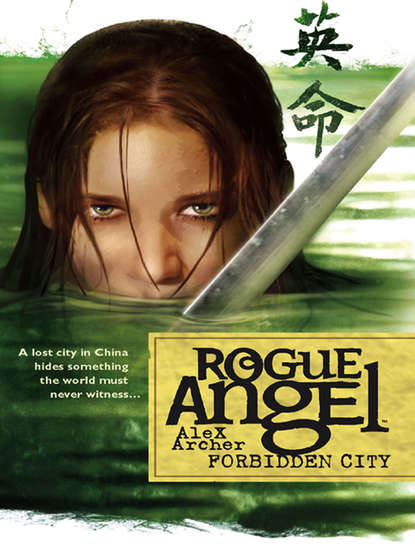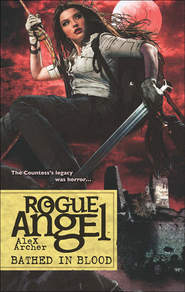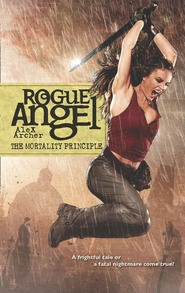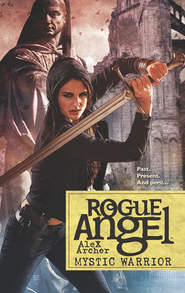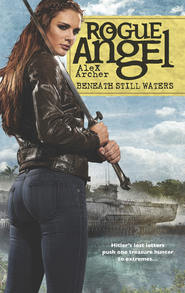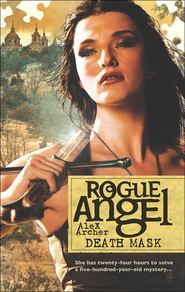По всем вопросам обращайтесь на: info@litportal.ru
(©) 2003-2025.
✖
Forbidden City
Автор
Год написания книги
2019
Настройки чтения
Размер шрифта
Высота строк
Поля
“I would like two fish.” Mai cautiously opened her worn purse and reached inside for coins.
Suen smiled at her. He liked her. In the mornings, sometimes she would bring him a cup of tea and rice cakes when she came to buy fish and they would talk for a time. She liked his stories about people he had met and of the places he’d seen. He’d been to the United States nine times.
“You’re in luck. I caught four.” Suen reached into the boat and brought out a stringer of fish. He loved fishing and spent hours at it when he could. While he was out on the water, he listened to the sounds of the city all around him.
Some days he read books of poetry or he would reread some of his favorite letters from his daughter. Mostly, though, he took his guitar and practiced his music. He was currently going through what he called his Bob Dylan phase. Kelly laughed at him when they talked over the phone whenever he mentioned that.
Mai examined the fish, then frowned in disapproval. “You were unlucky. These are small.”
“Not too small to eat.” Suen didn’t take affront at the comment. Mai was always trying to find ways to defray the cost of the fish.
“Not too small to eat, but two will no longer do. I must have three.”
Suen shook his head. “I’m sorry. I can only let you have two.”
“You’re going to eat the other two?” Mai looked at him suspiciously.
“Yes.”
Frowning again, Mai said, “You’re going to get fat.”
Suen didn’t think there was a chance of that. He was not quite six feet tall and had always been thin. His hair and beard had gone solid gray ten years or more ago.
“I’m not going to be eating them by myself,” Suen said.
Suspicion and resentment knitted Mai’s eyebrows. “Oh, then you have a girlfriend?”
“No.” Since his wife had died four years earlier, there hadn’t been anyone that Suen had been interested in like that. He had his teaching job and he had his music. Perhaps it wouldn’t have been enough for someone else, but for him it fit perfectly. “My daughter is going to join me tonight.”
“Ah,” Mai sniffed. “This is the one who went to live in America?”
“Yes.” Suen only had one child.
“Why is she coming here?”
“To visit.”
“Hmmph. She doesn’t do that very often.”
Suen shrugged. “She comes when she can. Her work keeps her busy.”
“A good daughter would find a way to visit her father more often. There is no excuse. She should be here. To take care of you in your final years.”
Suen smiled. “Truly, Mai, I hope that I am not in my final years.”
“You’re not getting any younger.”
“I suppose not.”
Mai offered to buy the two fattest fish, and Suen agreed to let her. The two smaller fish would make a fine dinner for him and his daughter.
He left his boat, knowing that no one would bother it, and walked up the embankment following the crooked steps with his guitar hanging over his shoulder. The walkways were made crooked because everyone knew that ghosts could only walk in straight lines.
Suen didn’t believe in ghosts, but he appreciated the craftsmanship that went into the building. As he trudged along, carrying the fish in the basket he’d brought, he looked out over the city. He was sixty-two years old. His daughter had come to him late in life, and she’d truly been a gift from the gods. But even in his lifetime, Shanghai had changed. He loved the history of the city, the good and the bad, and he hoped that it was never truly lost.
At the top of the hill, the Bund began in earnest. Shops and merchants’ pushcarts filled the thoroughfare. Voices carried an undercurrent of pleading and feigned insult, haggling and desire.
Suen lived a few blocks away. He was looking forward to his daughter’s visit. It had been almost two years. The last time she’d come, he’d had to nurse her back to health. Her work had nearly gotten her killed. He had asked her then to step away from it, but she hadn’t been able to.
Though he had never told her, he thought maybe her work was the result of the curse that had been put upon his family. It was the only thing that made sense to him. He had wanted to tell her about the curse, but he didn’t think she would believe him. More than that, the story had been passed through generations of his family. It was time for it to die.
Since that visit, there had been several phone calls and e-mail. Neither of them mentioned her work.
Suen was lost in thought when a van screeched to a halt on Zhongshan Road. He paid no heed because he knew he was safely out of the street.
Footsteps slapped the pavement, coming close to him. Suen turned, but by then it was too late.
Two men took Suen by the arms and lifted him from his feet. He tried to escape, but they were stronger than he was. Then a third man pointed a pistol at him.
“What are you doing?” Suen demanded. “I’ve done nothing to—”
The man shot him. Sharp pain spread out from Suen’s stomach, just below his breastbone. He looked down and spotted the small feathered dart jutting out from his body. Looking at the men, young and dressed in American clothes, Suen thought of Ngai Kuan-Yin and the document the man had wanted.
Suen tried to speak, but he was quickly sucked into a whirlpool of blackness.
5
“Why did you go up to Volcanoville, Miss Creed?”
Annja sat in the interview room at the ranger station.
“I’ve already told the ranger captain.” Annja sat across a Formica-topped table from the sheriff. Squeeze bottle condiments on the table reminded everyone that the room was more for socializing than interrogation. Topographical maps of the area were mounted under protective plastic on the walls. A lone bookcase was filled with pamphlets and novels ranging from Louis L’Amour westerns to Jeffrey Deaver thrillers.
“Maybe you could tell me again.” Sheriff Barfield was in his early forties and kept in shape. His tailored uniform was carefully pressed and the star on his chest gleamed in the light. His salt-and-pepper hair was neatly clipped. “All Captain Andrews has to do is keep the park and countryside clean. I’ve got to explain to three sets of parents why their kids aren’t coming home ever again.”
Annja nodded. She’d had a hard time resisting the impulse to open her notebook computer and research the belt plaque. But she knew if she showed an interest in it the piece would have been confiscated. She was sure she could do more toward solving the riddle it proposed than the park rangers or the sheriff’s department.
“Could you answer a couple questions for me first?” Annja picked up the bottle of water she had been given and took a sip.
Sheriff Barfield sat in the straight-backed wooden chair across from her. His cologne was fragrant, Old Spice or something like it.
“Sure.” Barfield nodded. “If I can.”
“Have you found Huangfu?”
“No.”
“What about the helicopter?”





